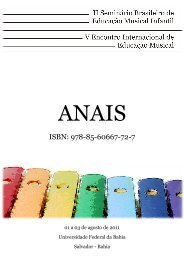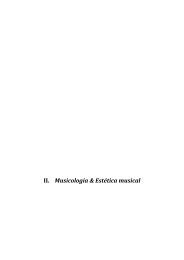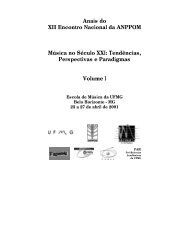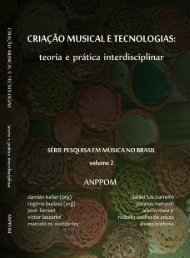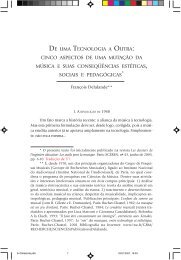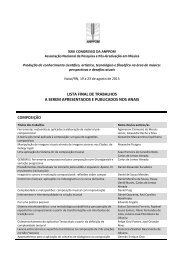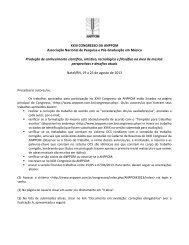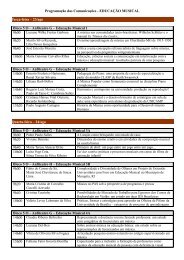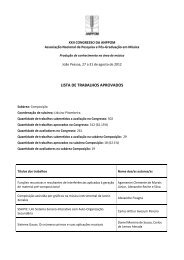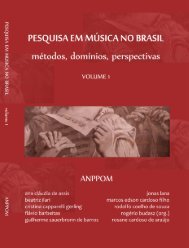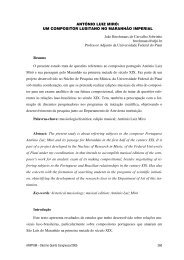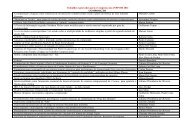download da versão impressa completa em pdf - anppom
download da versão impressa completa em pdf - anppom
download da versão impressa completa em pdf - anppom
Create successful ePaper yourself
Turn your PDF publications into a flip-book with our unique Google optimized e-Paper software.
and performance is an extr<strong>em</strong>ely complicated one. I wouldn’t ever<br />
want to say that the only valid form of analysis is the one that has<br />
implications for performance, because I think that there are many<br />
kinds of good analysis that does not have anything to do with<br />
performance. But I do think that there is a lot of analysis that does<br />
bear on performance.<br />
Now, as for your particular project I guess some of the things that<br />
you came up with do and some of th<strong>em</strong> don’t have implications for<br />
performance. Some of the things that you talked about have to do<br />
with grouping, the different collections for example. You were able<br />
to show whether in a given collection a particular note is a structural<br />
note or an <strong>em</strong>bellishing note. And you were able to show that at<br />
certain points the collection changes. Well I think that that will have<br />
influence on how you would shape phrases and that kind of thing.<br />
Other kinds of observations you made: the good interesting<br />
discussion that we had about the twelve-tone diatonization, at the<br />
Sonatina n.2. I thought that was fascinating theoretically. How would<br />
that have an impact on your performance? I doubt it would have<br />
any impact, or perhaps at best a very general impact. The very<br />
least an analysis can do is help you to grasp the piece as a whole<br />
and to m<strong>em</strong>orize it. In this case, when you know that the second<br />
repetition shifts to A major, the three sharp collection, well I think it<br />
will help you r<strong>em</strong><strong>em</strong>ber it! That’s the very least the analysis can do<br />
for you.<br />
Tradução: Essa é uma pergunta muito difícil. Eu diria que alguns<br />
tipos de observações analíticas são interessantes para teóricos<br />
como eu e que na ver<strong>da</strong>de não têm aplicações para a performance.<br />
Aqui está um ex<strong>em</strong>plo: observe-se o “Third String Quartet” de Bartók.<br />
Ao início dessa peça, os três instrumentos mais graves tocam um<br />
acorde e o primeiro violino toca um melodia que contém to<strong>da</strong>s as<br />
notas excluí<strong>da</strong>s do acorde. Somando tudo, t<strong>em</strong>os um agregado de<br />
to<strong>da</strong>s as doze classes de alturas. Algumas delas estão no acorde<br />
Revista Opus 12 - 2006<br />
177



